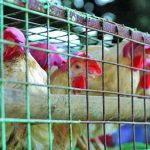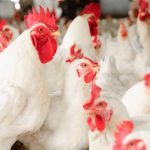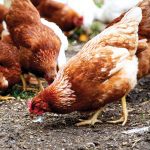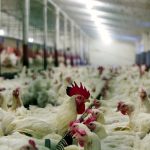
Tag Archives Avian influenza

US is ’18 months or so’ away from finding bird flu vaccine, says agriculture secretary
USDA plans to discuss poultry vaccinations with trading partners amid trade restriction concerns

Philippines bans poultry imports from California, Ohio to prevent bird flu spread
The country recently halted imports from Belgium, France on disease concerns

Sweden reports bird flu outbreak as disease spreads
The Philippines bans poultry imports from France, Belgium to protect poultry, workers, consumers

Avian flu alarm sounded for small flocks
Wild goose deaths spark calls for biosecurity measures

Bird flu spreads in Europe with a delay after warm autumn
Severe bird flu detected among Antarctic wild birds and mammals for first time

Manitoba sees first bird flu case of 2023
The virus was confirmed in a commercial poultry operation in the RM of Rhineland

French foie gras makers toast rising output after bird flu gloom
Canada, U.S., Japan ban French poultry imports since vaccination

Canada puts temporary ban on France’s poultry, eggs
CFIA move to 'manage the risk' from bird flu vaccination plan

France stacks the deck against bird flu but risks issues
France has launched its bird vaccination scheme amid fears of repeat H5N1 outbreaks

High-path avian flu pops back up in Saskatchewan, Alberta
Canada keeps sights on 'country-level freedom' from virus


